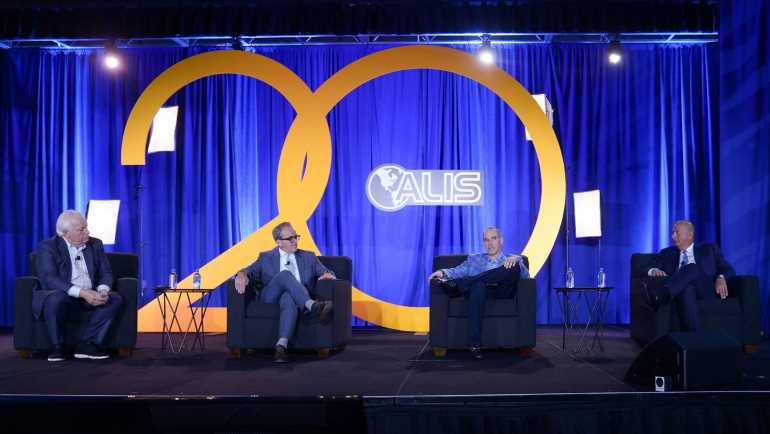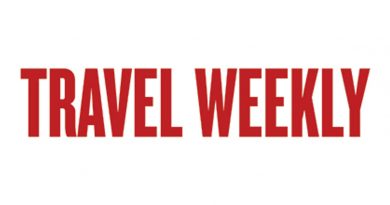At ALIS, a consensus that true recovery is going to take time
LOS ANGELES — An optimistic tone at the 20th annual Americas Lodging Investment Summit (ALIS) was tempered by several areas of uncertainty.
Speakers and attendees alike expressed their long-term belief in the resiliency of the hotel industry but acknowledged that recent developments reinforced the idea that post-pandemic recovery will not be a linear one.
“I believe travel will hit a new watermark high in 2024, 2025,” said Sloan Dean, CEO of Remington Hotels. “Unfortunately, we’re going to experience what we experienced here for another 12 or 24 months: two steps forward, one step back.”
Dean was referring to the mandate in Los Angeles County that masks be worn in all public, indoor settings, which was reimposed on July 17, a little more than a month after California was declared fully open for business. Continued lockdowns and new restrictions, in his view, would continue to breed uncertainty until more of the country, and the world, is vaccinated against Covid-19.
“I think it’s a concern,” said Homi Vazifdar, managing director of the hospitality investment firm Canyon Equity. “Today, it’s the delta variant. Tomorrow, what’s it going to be? This thing is like a bottomless pit; we don’t know when it’s going to end.”
Still, several speakers celebrated the return of the in-person event, and ALIS organizers estimated there were approximately 1,800 attendees at the three-day conference, which they said makes it the largest face-to-face travel conference since the pandemic was declared.
“Holding ALIS is a huge step to getting our industry back on track,” said Jonathon Zink, managing director of the Burba Hotel Network.
Recovery for travel difficult to predict
A panel of hospitality analysts agreed that the recovery for travel has been inconsistent across sectors, and new developments — the delta variant, continued international travel restrictions, economic factors — make it difficult to predict the future.
STR president Amanda Hite said, “Leisure is certainly the story that everyone is excited about, but I think the real takeaway from STR’s perspective is that, yes, recovery is happening, but it’s very uneven across the country. It depends on what type of hotel you are, what market you’re in.”
While leisure destinations are doing well, particularly beach towns and those within driving distance of major urban areas, many big cities that rely more on commercial business and international travelers, such as San Francisco, New York and Boston, are still well below 2019 numbers.
The lack of international travel “is impacting our business tremendously, and it’s going to take a long time,” said Heather McCrory, Accor’s North and Central America division CEO. “At the end of the day, I think it’s becoming more of a political than a health issue.”
In an analysis of guest revenue by HotStats, commercial travel in the second quarter of 2021 was roughly 50% of 2019 levels, while leisure travel was nearly equal to 2019. Group travel, according to Cindy Estis Green, CEO of the hospitality data analytics firm Kalibri Labs, is approximately two-thirds commercial and therefore still far below previous levels.
“Every market will be different, and the key will be composition of demand,” Green said, adding that it is better to look at submarkets to get a real sense of growth rather than national figures.
News that broke during the conference only added to the feeling of ambiguity. The Biden administration declined to adjust international travel restrictions even as Canada opened its borders to U.S. travelers, and cities such as Las Vegas issued new mask mandates as they combat a troublesome rise in Covid-19 cases in recent weeks.
“We anticipated international travel coming back in the next few months, but now we don’t have any visibility on when that might happen,” Hite said.
According to STR analysis, demand will approach the prepandemic level in 2022 and eclipse it in 2023, but RevPAR and average daily rate will lag, with both predicted to be at roughly 90% of 2019 numbers by 2023.
One issue cutting into profitability is the increasing cost of labor and staffing issues, several speakers said, with hotel executives reporting hourly wages increasing more than 10%.
“I’ve never used a staffing agency in the past as much as I have in the last four months,” said Warren Fields, president and CEO of the Pyramid Hotel Group.
With the U.S. Covid-19 vaccination rate just below 50% and the delta variant causing renewed concern and public health restrictions, a panel of executives from investment firms agreed that while they are bullish on the outlook four years down the road, the immediate future is harder to read.
“We were all hoping we’d get past that, but there is some risk” of Covid-19 restrictions returning, said Rob Hays, president and CEO of Ashford Hospitality Trust. “I think this recovery is not going to be a straight line. It’s going to be choppy.”
Source: Read Full Article



